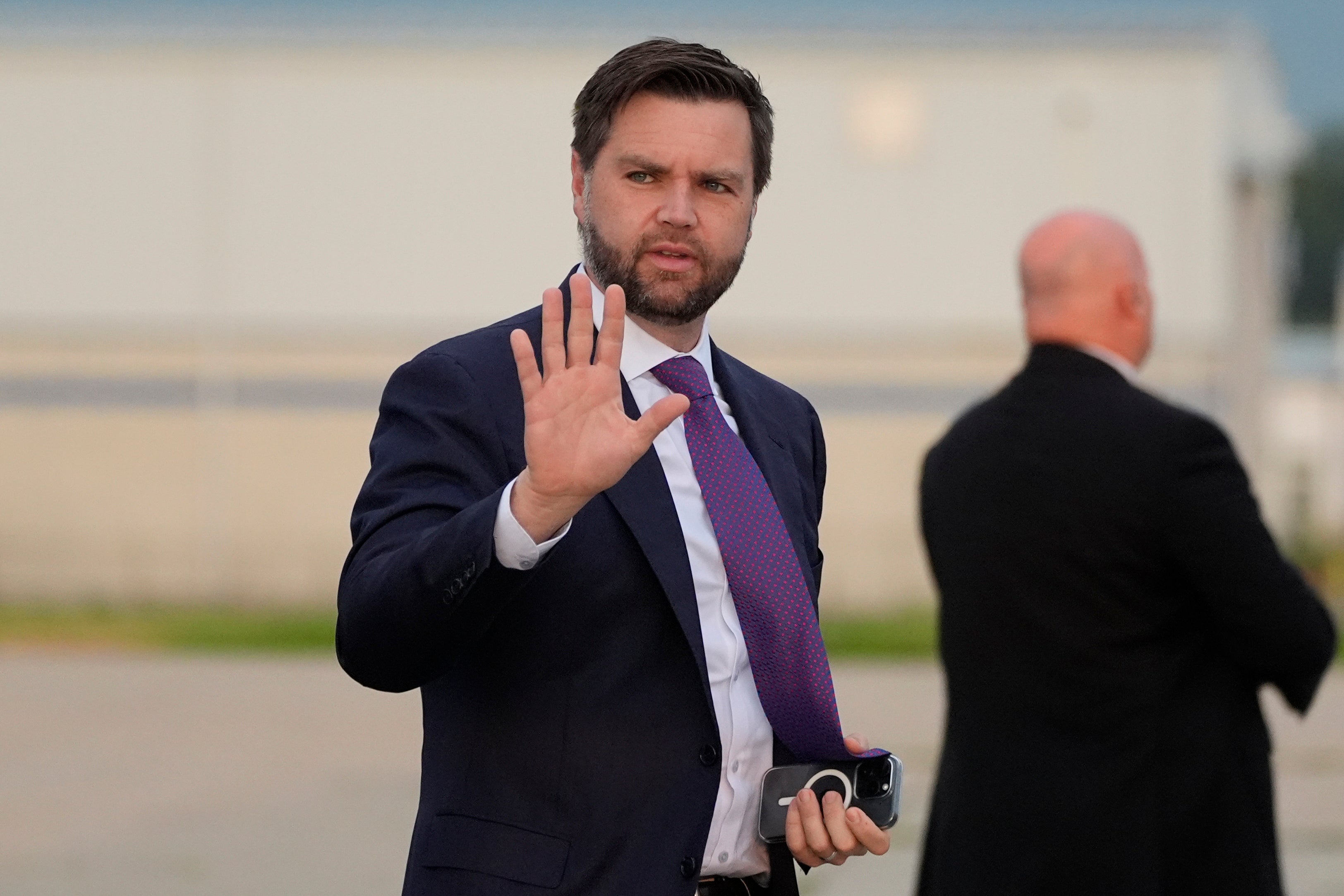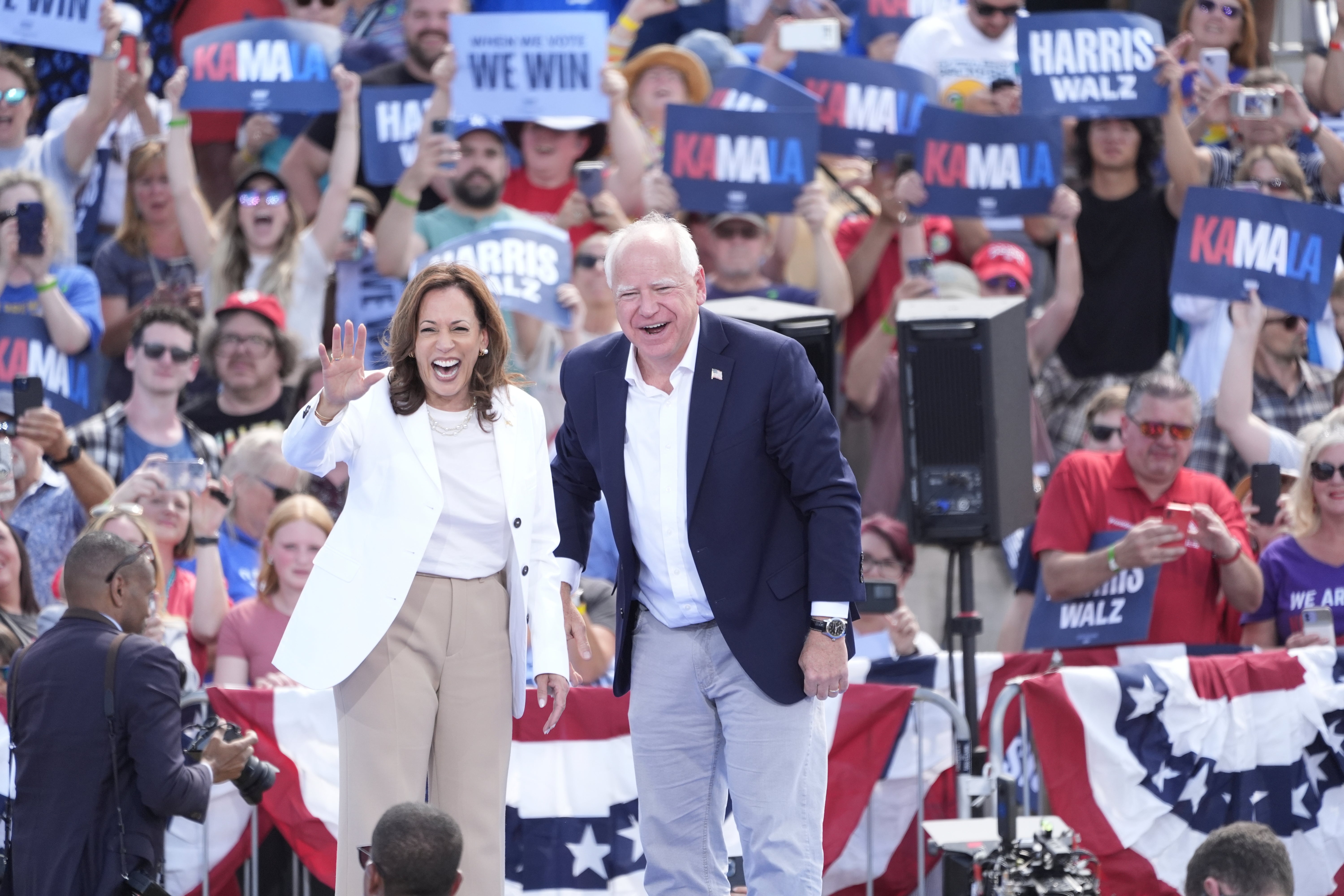Tim Walz and JD Vance were both picked to win the Rust Belt. What sets them apart?
America’s two vice presidential nominees have widely differing ideas about how to win the Rust Belt
Democrats and Republicans are set for a battle over the industrial midwest and the Rust Belt this year — and their vice presidential picks show it.
Kamala Harris’s selection of Minnesota Governor Tim Walz on Tuesday was a sign that her campaign has no plans to cede any ground in Wisconsin, Michigan or Pennsylvania — three states that have been critical in the past three election cycles. The selection of Walz, an affable football coach, former Army National Guardsman, and high school teacher, was a starting gun in the battle for the white working class that backed Trump in 2016.
JD Vance, meanwhile, has built a national brand around being a son of Appalachia whose background inspired both a strong social conservatism as well as a populist economic bent that mirrors Trump’s own. Vance, like his running mate, rails against multinational trade deals he blames for sending manufacturing centers overseas and was the lone Republican member of Congress to show up on a picket line in 2023.
So what similarities can be drawn between the two midwestern politicians’ platforms, and where does the divide fall?
Economics
Despite all the grief Vance is likely to give the Harris campaign over the current state of the US economy, issues of trade and labor policy are among the greatest areas of agreement between Walz and his new archrival.
First, let’s take the minimum wage. Walz, as a Democrat, carved out a careful moderate stance when the issue of pay rates for Uber and Lyft drivers came up under his tenure. Blocking a minimum pay rate bill that was causing the two companies to threaten to leave the state, Walz worked with rideshare companies to write a different bill which he signed into law this year — drivers are still expected to see their rates rise under the new law.
Vance is one of just a few Republicans on Capitol Hill who also supports efforts to raise wages through legislation. The Ohio senator signed on to a piece of legislation in 2023 that would have raised the federal minimum wage to $11 and indexed it to inflation.

Moving on to trade: Walz and Vance have both made reputations for themselves as free trade skeptics. When he was in Congress, Walz voted repeatedly against trade bills he argued would lead to more jobs being outsourced overseas, including legislation that would have streamlined Barack Obama’s ability to secure an agreement on the Trans-Pacific Partnership (TPP). Vance has railed repeatedly against both NAFTA, as well as the US support for China joining the World Trade Organization (WTO) in 2000.
The two both claim to be pro-union as well. Walz has supported an ambitious progressive labor agenda as governor of Minnesota, including outlawing non-compete agreements and barring businesses from penalizing employees for refusing to participate in what are called “captive audience meetings” where anti-union materials are distributed and discussed. Walz is a former United Auto Workers (UAW) member and like Vance appeared on a picket line for the Auto Workers in 2023. The senator does not, however, support the PRO Act — a piece of federal legislation meant to protect collective bargaining which is strongly supported by national unions.
Social issues
The two men vying to be America’s next vice president both claim to be pro-family. They have widely disparate ideas about what that means.
Vance’s views on the American family have been in the center of the spotlight in the weeks since he was nominated at the GOP convention in July. Unearthed comments from 2021 reveal him attacking unmarried women, childless Americans of both genders and arguing that Americans with children should be granted extra votes at the ballot box. He has stated that he does not believe Americans without children — for whatever reason — have the same “stake” in the country’s future as those who do.
Along with those statements, which have caused headaches for the Trump-Vance campaign, Vance believes in a laundry list of socially conservative positions. Like many conservatives a decade after gay marriage protections were established country-wide, Vance doesn’t make his views on whether he thinks it should be legal clear; he dodged such questions in 2022 when a bill to codify those protections into law was moving through Congress while stating that he’d oppose the bill on religious liberty grounds. He’s also spoken out repeatedly against divorce and raised concerns about America’s birthrate.

Walz is, of course, the polar opposite — a progressive on social policy who declared his state a “refuge” for transgender Americans and whose selection as VP nominee is a clear sign that Harris will continue her embrace of the LGBTQ community as she campaigns for president. And he’s a proud supporter of IVF, having used fertility treatments in the conception of his daughter Hope.
On the issue of abortion, Vance’s views are notable too. He supports a national abortion ban, something his running mate claims he would not sign into law. That discrepancy has been a target of Democratic attacks, as Harris’s party seeks to block Trump’s efforts to escape the most extreme anti-abortion legislation members of his party have championed around the country.
Foreign policy
America’s footprint abroad is another major area of division between Walz and Vance as voters face a major crossroads on the issue of Ukraine this November.
President Joe Biden and Harris alongside him have made financial, political and strategic support for Ukraine and its military a keystone of their foreign policy over the last three and a half years. Under Biden’s leadership, Congress has sent billions of dollars in munitions, vehicles, arms and other resources to Ukraine to support its defense against Russia’s invasion, a position that can be largely described as the consensus among America’s foreign policy establishment in Washington. Liberal and conservative voices in the national security sphere have both professed the importance of countering Russian aggression in Ukraine and halting further such moves by Moscow in Eastern Europe. Walz was a vocal supporter of this view before joining the Harris 2024 ticket, and that’s not about to change.
Vance, meanwhile, is one of the most vocal Ukraine skeptics in Congress. In unearthed text messages published by The Washington Post on Wednesday, he declared to fringe conspiracy theorist (and Holocaust revisionist) Charles (“Chuck”) Johnson that he “won’t even take calls from Ukraine” and described futile efforts by top Ukrainian officials to discuss the issue of funding bills with his office: “Two very senior guys reached out to me. The head of their intel. The head of the Air Force. Bitching about F16s.”
In 2022, he also declared on Steve Bannon’s War Room podcast: "I gotta be honest with you, I don’t really care what happens to Ukraine one way or another."
China is another issue where the two men differ substantially. Vance is supportive of Trump’s efforts to spark what many experts have called a “trade war” with China, a series of tit-for-tat tariffs aimed at helping US industries.
Walz, meanwhile, has pointed to the need to maintain stable trade relations with China, arguing its importance for US farmers who export crops abroad.
Join our commenting forum
Join thought-provoking conversations, follow other Independent readers and see their replies
Comments
Bookmark popover
Removed from bookmarks